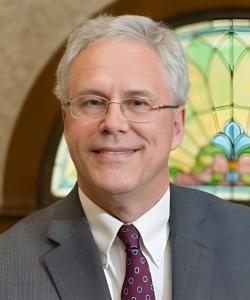On May 10, 2016, the Connecticut Supreme Court issued a ruling that provides a blueprint on how to use a trust to protect assets for children who may need long-term care in the future. In this case, the Court ruled that the Department of Social Services improperly denied a Medicaid application because they counted assets in a testamentary trust (a trust created in a will) that should have been considered exempt for Medicaid purposes. Pikula v. Department of Social Services, 2016 WL 1749666 (2016). This opinion clarifies the boundaries between a general support trust (which is a countable asset for Medicaid) and a fully discretionary supplemental needs trust (which is an exempt asset for Medicaid purposes).
John Pikula prepared a Will in 1989. The Will contained a trust for the benefit of his two daughters, Marian and Dorothy. The trust requires the Trustee to pay to or spend for the benefit of Marian and Dorothy as much of the net income and principal as the Trustee deems advisable for their maintenance and support, and to add undistributed income to principal. The trust also granted Trustee “absolute discretion” to disburse trust principal “as he may deem advisable to provide adequately and properly for the support and maintenance of the …beneficiaries … [for] any expenses incurred by reason of illness and disability.” The trust also had some important exculpatory language:
In determining the amount of principal to be so disbursed, the Trustee shall take into consideration any other income or property which such income beneficiary may have from any other source, and the Trustee’s discretion shall be conclusive as to the advisability of any such disbursement and the same shall not be questioned by anyone. For all sums so distributed, the Trustee shall have full acquittance.
John died in 1991. The trust held a house as its only asset for many years. The Trustee eventually sold the house and the proceeds were kept in trust for Marian’s care. In 2012, Marian entered a long-term care facility and applied for Medicaid. The trust value was $169,745. Marian applied for Title 19 (Medicaid) in 2012.
The Department of Social Services (DSS) denied Marian's application for Medicaid stating that the assets in the testamentary trust constituted a countable support trust putting her over the $1,600 asset limit. In 2013, Marian filed a petition in Newington Probate Court and the judge found that it was a supplemental needs trust that could not be counted as an asset for Medicaid eligibility.
With the probate court decree in hand, Marian appealed DSS's decision arguing that her father intended to create a supplemental needs trust based upon the language used in the Will. She claimed that she could not compel payments from the trust for her support. Nevertheless, a fair hearing officer at DSS ignored the probate court decree and found that the use in the trust of the language “maintenance and support” created a general support trust which DSS could count as an asset for Medicaid eligibility determinations.
Undeterred, Marian appealed to the Connecticut Superior Court. Judge Carl Schuman agreed with the DSS hearing officer and ruled in 2014 that the trust was for her support and, consequently, was a countable asset for Medicaid purposes. Marian appealed the Judge Schuman’s decision to the Connecticut Appellate Court but the matter was taken directly by the Connecticut Supreme Court.
This time, Marian prevailed. The Supreme Court of Connecticut disagreed with the hearing officer’s determination and reversed the Superior Court’s finding that it was a support trust and countable asset. The Supreme Court reasoned that "the fact that the trustee is only required to use as much income as he 'may deem advisable' to provide for a daughter’s maintenance indicates that the testator intended for the trustee to have complete discretion in determining what, if any, of the income or principal was to be used for her maintenance.” The Court emphasized that the Trustee’s discretion is conclusive as to the advisability of making distributions from the trust and no one can question the Trustee’s exercise of discretion. Further, the Court concluded, after considering the circumstances surrounding the trust creation, that the use of the terms “maintenance” and “support” did not limit the Trustee’s exercise of discretion in a way that would create a general support trust. The Court also noted that the amount in the trust was not sufficient to provide for Marian’s support, because it would be quickly exhausted if it were applied to her long-term care expenses. In this way, it distinguished this case from a 2004 case entitled Corcoran v. Dept. of Social Services in which the trust value was $854,307. In that case the Supreme Court found the trust was intended by the settlor to be a general support trust which must be counted for Medicaid purposes.
In conclusion, the Supreme Court found that the trust under John Pikula’s Will was a discretionary supplemental needs trust and DSS could not count it for purposes of determining eligibility for Medicaid. The Pikula case teaches the importance of estate planning. John protected his daughter by preparing a Will with a discretionary supplemental needs trust. Marian will now receive the long-term care she needs because of her father’s foresight and his attorney’s able drafting.

